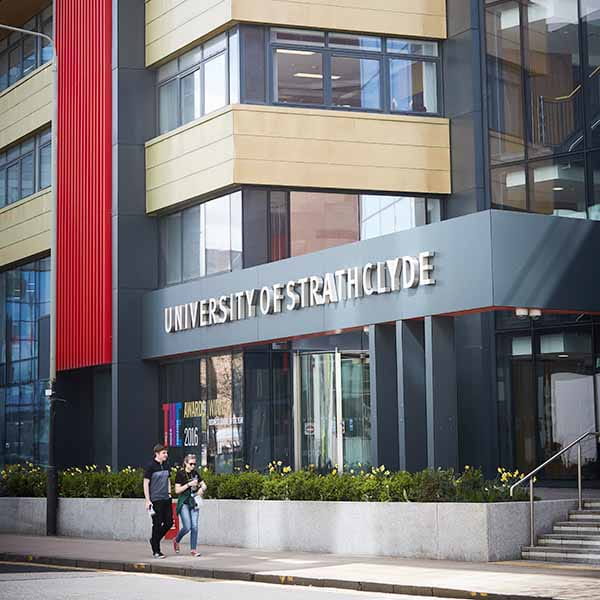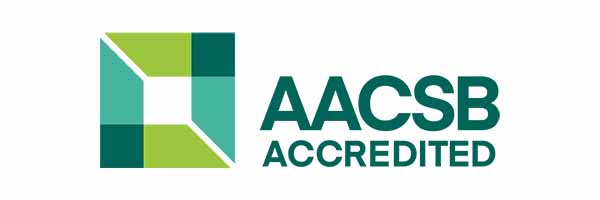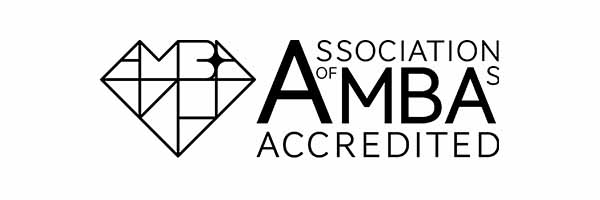MSc Tourism Marketing Management
ApplyKey facts
- Start date: September
- Accreditation: ACSB, EQUIS & AMBA
- Study mode and duration: 12 months full-time
Study with us
- suitable for graduates who want to pursue a managerial career in tourism marketing
- undergraduate studies in tourism or hospitality are not a prerequisite of this programme
- develop an understanding of core marketing theory and apply this to the dynamic and international tourism sector through industry-specific insights and engagement
- skills-based and experiential teaching supports technological, leadership, teamwork and cross-cultural upskilling to fast-track your career
The Place of Useful Learning
UK University of the Year
Daily Mail University of the Year Awards 2026
Scottish University of the Year
The Sunday Times' Good University Guide 2026
Why this course?
Our Tourism Marketing Masters covers core marketing theory and concepts relating to strategy, consumers, branding, research and sustainability, alongside more focused study relating to destinations, services and tourism resources.
Key features of the course include:
- a teaching team with extensive research and knowledge exchange experience in tourism, as well as wider marketing disciplines
- experiential learning via case studies and high-calibre industry collaborations and speakers
- capstone projects with the opportunity to lead a theory-based or practice-based research project
- teaching focused on transferable skills and employability prospects informed by leading tourism organisations worldwide
Our MSc Tourism Marketing Management students come from all parts of the world, which lends itself well to the international field of tourism. You'll have the opportunity to study alongside students from other postgraduate programmes, embracing a diverse spectrum of perspectives in the classroom.


About the department
MSc Tourism Marketing Management is a specialised course delivered by Strathclyde Business School’s Department of Marketing, one of the first Marketing Departments established in the UK. With established expertise and industry engagement in Tourism, MSc Tourism Marketing Management students benefit from the Department’s fifty years of internationally leading research, innovation and impact, and global engagement that deliver a distinct University experience.
Accreditations & Affiliations
The Department of Marketing has an international reputation for high quality teaching and research. Many of our staff act as advisors to private and public organisations and are active across a range of knowledge exchange initiatives, many with a specific focus on tourism. Some staff members hold senior positions in esteemed professional associations such as the Chartered Institute of Marketing, the Market Research Society, the Research Excellence Framework and the Academy of Marketing.
As a Department, we are fully aligned with the University’s goals of being a socially progressive, international technological university and are one of the largest departments in the triple-accredited Strathclyde Business School. The Department’s teaching and research activities fully embrace the University motto as a “Place of Useful Learning”.
The Department of Marketing also houses the Stephen Young Institute for International Business (SYI). SYI was launched in 2022 by Dr Charles Huang to honour his mentor and founder of the Department, Professor Stephen Young.
Triple-accredited business school
All MSc Tourism Marketing Management students undertake the following classes.
Strategic Marketing Management
This introductory class covers key tools and theories used within marketing management. Moving through the Marketing Planning Process, you'll learn how to undertake market evaluation, make informed decisions and implement strategies to succeed in competitive markets.
By the end of this class, you should be able to apply marketing knowledge in a management capacity to develop and defend marketing plans.
Consumer Behaviour
This class provides you with an understanding of the principal concepts of consumer behaviour. This acknowledges the central role of consumers in marketing strategy but expands beyond traditional buyer behaviour to explore ‘having’ and ‘being’ as value formation processes that influence the way we feel and live.
By the end of this class, you should be able to analyse consumer behaviour, drawing on theoretical constructs and models to analyse and explain consumption across a range of contexts.
Marketing Research in a Digital Age
This class provides you with practical skills required to design and lead research in marketing. This builds on the need to understand the market, competitors and customers and the role of secondary, qualitative and quantitative research in doing so. Underpinned by the Marketing Research process, students will move through problem formulation, research design, data collection, data analysis and presentation of findings.
By the end of the class, you should be able to utilise a range of traditional and digital data collection methods to address marketing problems, devise solutions and assess outcomes.
Brand Management & Strategy
This class provides a detailed understanding of brand theory and application of key brand strategies. Class content is rich in branding theory, and you'll put the theory to practice applying key branding applications to major global brands. You'll gain a clear appreciation of the role of brand strategy within the corporation’s operating plan. This will entail consideration of environmental factors causing changes to the structure and composition of the brand portfolio as well as discussion of conceptual issues surrounding the strategic roles of brand management.
By the end of the class, you'll have the skills required to manage effectively in a global brand environment.
Social Responsibility & Sustainability
This class explores sustainability and the role of marketing in society as an agent of change. Marketing has a substantial role to play in tackling the biggest challenges in our society, and in particular, driving societal discourse and market change towards the attainment of the Sustainable Development Goals (SDGs). A number of different techniques are explored to identify and exploit vectors for change through different approaches to understanding market systems, targeting key stakeholders to drive change, and marketing tactics for reshaping market, organisational and consumer behaviour.
By the end of the class you should be equipped to challenge marketing roles, particularly around product – service development, business models, positioning and communication, to engage in greater levels of sustainability.
Destination Marketing Management
This class presents destination as the core element of tourism supply. We define destination in spatial as well as cultural/symbolic terms, and explore a wide variety of sectors such as hospitality, the built and natural environments, cultural heritage, entertainment, sport and retailing. This provides opportunity to consider the diverse nature of the destination and lack of central ‘control’, that implies quite specific challenges and responses in its management and marketing.
By the end of this class, you will be equipped with the skills necessary to respond to changes and challenges in destination marketing.
Managing Tourism Resources
This class provides an introduction to the structure and management of individual tourism organisations and attraction resources in the private, public and third sectors. This covers key industries involved in the distribution of tourism products, facilitation of tourist transport and accommodation, and sustainable management of key resources at destination level.
By the end of the class, you'll recognise the important roles of tourism managers and consumers in the co-creation of products, services and experiences, allowing you to engage in the challenging management environment where tourism is produced and consumed.
International Services Marketing
This class emphasises the need to adopt a different approach when marketing services rather than products. Services represent more than a quarter of all world trade and the world market for services is growing at more than twice the rate of the product sector. Many companies producing products are turning to service to provide their differentiation.
By the end of this class, you'll recognise that services present unique challenges. Understanding this will enable you to build customer relationships through quality service, which is fundamental to marketing success in every organisation.
Key skills
This class is taken alongside core marketing classes, supporting you to develop skills associated with academic writing, presentations, group work and research needed to complete a postgraduate programme. This responds to feedback from industry that emphasises the need for high standards of performance in skills and business practices. It also supports the more conceptual learning in marketing, as well as developing the potential of our graduates to become senior business managers who work in global markets.
As well as core classes, Marketing Tourism Marketing Management students can take one additional elective class. The list of electives varies from year to year to align with contemporary issues and class sizes, but it is anticipated that the following, or similar, will be offered.
Artificial Intelligence in Marketing
Given the rapid rise of artificial intelligence (AI) as a transformative force in how we work, live, and create value, this class explores its growing role in marketing. You will examine key concepts within the marketing AI ecosystem, including strategy, ethics, regulation, and the idea that AI can perform a range of tasks through multiple intelligences. The class also looks at how AI creates new value-creation opportunities across the marketing mix and considers the future of AI-enabled marketing. In response to shifting job markets, where some roles are becoming redundant while new AI-supported opportunities emerge, you will gain the knowledge and skills needed to navigate these changes, in line with the University of Strathclyde’s commitment to useful learning.
By the end of this class, you will be equipped with the theoretical insight and practical skills needed to navigate and thrive in a world where AI is playing an increasingly influential role in marketing.
B2B Key Account Management
This module recognises that generating and delivering value for the B2B customer is key in developing a competitive advantage. The module covers the B2B Market environment, supplier selection and management, organisational buying behaviour, and B2B customers, exploring the ‘portfolio’ approach to managing relationships with key accounts and customers for strategic goals. This brings to the fore the significance of B2B sectors, as business exchanges account for more than 60% of all transactions taking place in any given economy.
By the end of the module, you'll understand the unique and distinctive characteristics of B2B selling and supplying while maintaining a mutually beneficial and ongoing relationship. This is important as many marketing graduates will likely work with B2B suppliers.
Contemporary Consumers
This elective class is designed to build upon the core consumer behaviour class by allowing you to work on independent research projects that develop in-depth knowledge of current thinking in the discipline and by analysing a chosen contemporary consumer context with support from theoretical inspiration. Understanding consumption and the changing consumer within shifting cultural contexts is central to Marketing.
By the end of this class, you'll be able to build on consumption theory and research to critically analyse consumer behaviour in commercial or non-commercial contexts. This is invaluable to organisations of all descriptions.
Export Marketing
This class covers the key strategic and operational aspects of export marketing. It situates export marketing within the wider spectrum of foreign market entry modes and justifies the selection of export modes from amongst a wider range of options. You'll build knowledge and understanding of a variety of driving forces behind selecting export modes and gain a better understanding of the international dynamics that influence companies export performance in different sociocultural contexts.
By the end of the class, you'll be able to prepare export marketing plans, building on readiness to export, operating conditions, behaviour and export strategy.
Integrated Marketing Communications
This class will explore relevant marketing communications theories, consider the role and purpose of marketing communications, critically review constituent components of the marketing communications mix and consider how marketing communication tools are used in practice. The role of marketing communications in bridging the gap between an organisation and its many stakeholders and providing a face voice for organisations will be emphasised. In particular, the class will consider the need for and management of Integrated Marketing Communications (IMC).
By the end of the class, you'll be able to identify factors that impact upon the selection, implementation and evaluation of effective IMC and use this to develop a communications strategy. This is an exciting, vibrant and contemporary topic that can contribute to laying the foundations for future careers in marketing.
International Culture & Heritage Marketing
This class explores the marketing of culture and heritage as ‘resources’ in a global context. You'll be introduced to the essential dimensions of culture, heritage and the arts as resources for many types of organisations, both private and public sector, in activities such as tourism, festivals and events, community redevelopment and corporate branding.
By the end of the class, you'll understand the theoretical and practical dimensions of culture and heritage, which need to be understood by tourism managers if these resources are to be used responsibly and sustainably.
Retail Marketing Management
This class assesses the role of retailing within the context of the overall supply chain and within the economy. We look at key operational issues such as store design and layout, location and customer service. The class also focuses on changing trends for retail and how technology has played a role in shaping the retail industry. We place this in the global context, demonstrating how important the retail sector is in driving the global economy.
By the end of the class, you'll be familiar with the various tools and techniques used by retailers and be able to apply these to develop retail strategy in international and global contexts, addressing cultural, social, economic, and legal issues.
Over the summer term, you'll undertake a capstone research project. You can follow one of two pathways: a theory-based Marketing Dissertation; or a practice-based Marketing-Works Live Project.
Dissertation
The Dissertation offers you an opportunity to study, in depth, a specific area of Tourism Marketing Management of your own interest.
Working individually, you'll be expected to conduct a literature review, develop an appropriate research methodology, undertake empirical research and present findings with implications for tourism marketing theory and practice. You'll be assigned a supervisor from the Department to oversee progress.
Marketing Works (Industry Project)
The Marketing Works (Industry Project) provides you with a challenging organisation-based, action-learning opportunity to advise a company on a marketing problem or opportunity.
You will consult your client organisation with the objective of delivering realistic recommendations which, if implemented, could reasonably be expected to help generate strategic marketing plans. You will be expected to consult relevant theory, design and execute appropriate data collection and analysis, and present key outcomes and recommendations to the client. You'll be assigned a supervisor from the Department to oversee progress.
Learning & teaching
The Department of Marketing adopts a research-led teaching approach designed to facilitate integration of the theoretical and practical aspects of the programme. All modules require a high level of student engagement and interaction between students is encouraged.
A comprehensive support package is provided to enhance your learning and to ensure maximum benefit during your period of study. This includes:
- access to a wide range of text and digital resources via The University Library and Databases
- a suite of IT resources, including on-site hardware and an extensive list of software downloads
- state-of-the-art teaching facilities across the business school and our dedicated Teaching & Learning Building
- support mechanisms such as staff-student liaison meetings, student representations, drop-in student hours and module and programme evaluations
Methods
Learning and teaching methods will vary between courses. As a Department, we work towards Education for Sustainable Development Goals and seek to embed Entrepreneurial competencies via a wide range of contemporary learning and teaching activities. This includes:
- case studies
- simulation activities
- inquiry or problem-based learning
- debate and discussion
- flipped classrooms
- experiential and project-based learning
- guest lectures
- self-motivated reading and research
Assessment
Assessment varies between modules. Methods used are informed by SCQF (Scottish Credit and Qualifications Framework) and FQHEIS (Framework for Qualifications of Higher Education Institutions in Scotland) Descriptors for master's degrees. You'll be required to conduct both primary and secondary research to undertake critical analysis across assessments that comprise individual and group elements. Submission formats include written reports and essays, oral presentations, examination and class tests, and reflective submissions.
Chat to a student ambassador
Want to know more about what it’s like to be a Strathclyde Business School student at the University of Strathclyde? A selection of our current students are here to help!
Our Unibuddy ambassadors can answer all the questions you may have about their course experiences and studying at Strathclyde, along with offering insight into life in Glasgow and Scotland.
Entry requirements
| Academic requirements | Minimum second-class Honours degree, or overseas equivalent (view the entry requirements for your country) in any subject. |
|---|---|
| English language requirements | Students whose first language is not English must have a minimum of 6.5 IELTS score, with no individual score lower than 5.5. Get more information about the English language requirements for studying at Strathclyde. |
Pre-Masters preparation course
The Pre-Masters Programme is a preparation course held at the University of Strathclyde International Study Centre, for international students (non-UK/Ireland) who do not meet the academic entry requirements for a Masters degree at University of Strathclyde.
Upon successful completion, you'll be able to progress to this degree course at the University of Strathclyde.

My experience of the classes has been great because the lecturers in the Marketing department are friendly and professional. They are eager to stimulate your mind to think of new ideas to promote tourist destinations of a city or country throughout the world.
Fees & funding
All fees quoted are for full-time courses and per academic year unless stated otherwise.
Fees may be subject to updates to maintain accuracy. Tuition fees will be notified in your offer letter.
All fees are in £ sterling, unless otherwise stated, and may be subject to revision.
Annual revision of fees
Students on programmes of study of more than one year (or studying standalone modules) should be aware that the majority of fees will increase annually.
The University will take a range of factors into account, including, but not limited to, UK inflation, changes in delivery costs and changes in Scottish and/or UK Government funding. Changes in fees will be published on the University website in October each year for the following year of study and any annual increase will be capped at a maximum of 10% per year. This cap will apply to fees from 2026/27 onwards, which will not increase by more than 10% from the previous year for continuing students.
| Scotland | £16,050 |
|---|---|
| England, Wales & Northern Ireland | £16,050 All home fee status candidates who are given an offer of study on this programme, will be automatically offered our SBS Masters scholarship for Home/UK students. |
| Republic of Ireland |
If you are an Irish citizen and have been ordinary resident in the Republic of Ireland for the three years prior to the relevant date, and will be coming to Scotland for Educational purposes only, you will meet the criteria of England, Wales & Northern Ireland fee status. For more information and advice on tuition fee status, you can visit the UKCISA - International student advice and guidance - Scotland: fee status webpage. Find out more about the University of Strathclyde's fee assessments process. |
| International | £32,800 All international candidates who are given an offer of study on this programme, will be automatically offered our SBS International Masters scholarship, which is £9,000 for this programme. A separate application is required for our higher value Dean’s Excellence Award. |
| Visa & immigration | International students may have associated visa and immigration costs. Please see student visa guidance for more information. |
| Available scholarships | Take a look at our Business School scholarships. |
Please note: The fees shown are annual and may be subject to an increase each year. Find out more about fees.
How can I fund my course?
Scottish postgraduate students
Scottish postgraduate students may be able to apply for support from the Student Awards Agency Scotland (SAAS). The support is in the form of a tuition fee loan and for eligible students, a living cost loan. Find out more about the support and how to apply.
Don’t forget to check our scholarship search for more help with fees and funding.
Students coming from England
Students ordinarily resident in England may be to apply for postgraduate support from Student Finance England. The support is a loan of up to £10,280 which can be used for both tuition fees and living costs. Find out more about the support and how to apply.
Don’t forget to check our scholarship search for more help with fees and funding.
Students coming from Wales
Students ordinarily resident in Wales may be to apply for postgraduate support from Student Finance Wales. The support is a loan of up to £10,280 which can be used for both tuition fees and living costs. Find out more about the support and how to apply.
Don’t forget to check our scholarship search for more help with fees and funding.
Students coming from Northern Ireland
Postgraduate students who are ordinarily resident in Northern Ireland may be able to apply for support from Student Finance Northern Ireland. The support is a tuition fee loan of up to £5,500. Find out more about the support and how to apply.
Don’t forget to check our scholarship search for more help with fees and funding.
International students
We've a large range of scholarships available to help you fund your studies. Check our scholarship search for more help with fees and funding.
Glasgow is Scotland's biggest & most cosmopolitan city
Our campus is based right in the very heart of Glasgow. We're in the city centre, next to the Merchant City, both of which are great locations for sightseeing, shopping and socialising alongside your studies.
Careers
As an MSc Tourism Marketing Management student, you'll have access to a dedicated careers specialist, employability seminars, interview support and CV compilation. The Department works closely with the University Careers Service to ensure the programme is taught with an employer’s perspective in mind. Tourism Marketing Management classes adopt a skills-based learning approach intended to provide you with the knowledge and skills demanded by leading organisations worldwide.
The Department of Marketing’s collaboration and engagement with industry provides you with the opportunity to build networks and engage with potential employers. Our Tourism Marketing research cluster has extensive Knowledge Exchange activities, especially related to Scottish tourism, leading to collaborations with organisations including the West Highland Way and the Loch Lomond and Trossachs Trust.
International students
We've a thriving international community with students coming here to study from over 140 countries across the world. Find out all you need to know about studying in Glasgow at Strathclyde and hear from students about their experiences.

Apply
For information and guidance on the application process, take a look at our How to Apply web page.
Start date: Sep 2026
Tourism Marketing Management
Contact us
SBS Postgraduate Admissions
Telephone: +44 (0)141 553 6105 / +44 (0)141 553 6116
Email: sbs.admissions@strath.ac.uk
Strathclyde Business School, University of Strathclyde
199 Cathedral Street
Glasgow
G4 0QU
Have you considered?
We've a range of postgraduate taught and Masters courses similar to this one, which may also be of interest.




